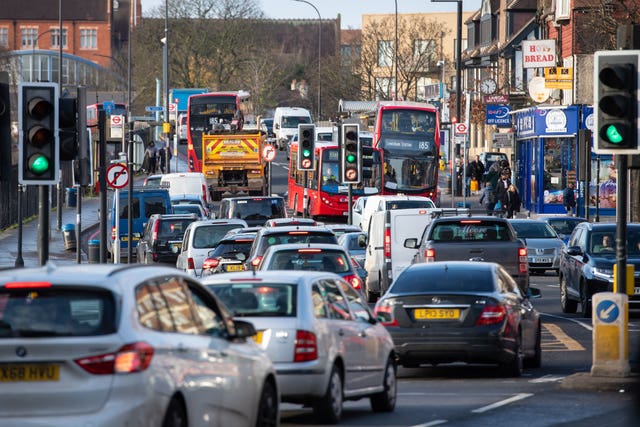
Air pollution causes harm to people at all stages of life, including reducing sperm count and damaging foetal growth, new research has shown.
A review of key evidence on the effects of air pollution, drawing from more than 35,000 studies in the last 10 years, has detailed the ways it causes harm from pre-birth to old age.
The researchers, from Imperial College London’s Environmental Research Group, said particulate matter (PM2.5) and nitrogen dioxide (NO2) are particularly harmful – both of which come from vehicle exhausts.
There is no evidence to identify a threshold where PM2.5 does no harm and even people living in the least polluted suburbs of London are still being affected, they said.
The authors wrote: “While headline figures on the health impact of air pollution focus on the equivalent number of premature deaths, the wider impacts are hiding in plain sight in the contribution of air pollution to the burden of chronic diseases.
“These affect our quality of life and have a large cost to society through additional health and social care costs, as well our ability to learn, work and contribute to society.”
During pregnancy, air pollution harms foetal development and can cause low birth weight, miscarriages and a low sperm count in men.
In children, it can stunt lung growth, cause asthma and affect blood pressure, cognitive abilities and mental health.
In adulthood, it makes early death more likely through multiple chronic illnesses, cancer and strokes.

“Perhaps, the most important new finding is evidence related to both the impact of air pollution on brain health, including mental health and dementia, and early life impacts that could lead to future health burdens within the population,” the authors wrote.
“Both represent significant, but currently unquantified costs to society and the economy.”
Ella Adoo-Kissi-Debrah was the first person to have air pollution listed as a cause of death for an individual person in the UK.
She died in 2013 at the age of nine after suffering an asthma attack brought on by inhaling traffic fumes.
Public Health England estimated that up to 43,000 people a year are dying in the UK because of air pollution and that it could cost the country as much as £18.6 billion by 2035 unless action is taken.
The authors of the current research said: “Policies should be aimed at reducing the accumulating harm from air pollution and the health degradation, in addition to protecting people who have become vulnerable to current pollution concentrations.”
The work was commissioned by the Greater London Authority and drew heavily on findings from the World Health Organisation, the UK Committee on the Medical Effects of Air Pollution, the Royal College of Physicians, the Health Effects Institute, and the International Agency for Research on Cancer.


Comments: Our rules
We want our comments to be a lively and valuable part of our community - a place where readers can debate and engage with the most important local issues. The ability to comment on our stories is a privilege, not a right, however, and that privilege may be withdrawn if it is abused or misused.
Please report any comments that break our rules.
Read the rules here